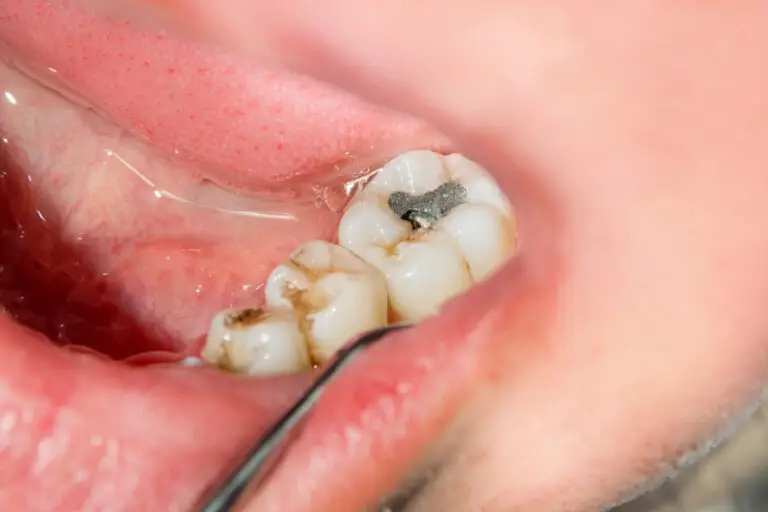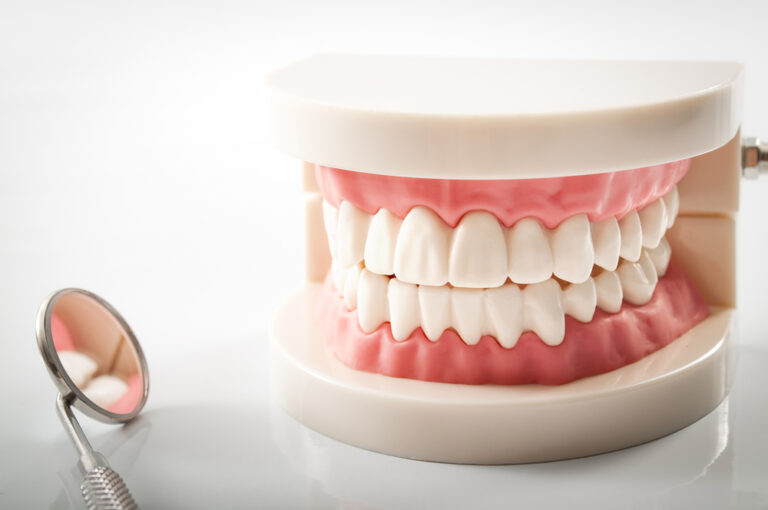It’s something many of us will have experienced at some point – biting into something deliciously sweet only to experience stabbing pain in our teeth moments later.
Buy why does this happen? And what can we do to prevent it? In this post, we have all the info you need as we answer the question, why do my teeth hurt when I eat sweets?
If you want a preview of some of the stuff we’re going to be talking about, you can also check out this video before reading on.
Why does sugar cause pain and sensitivity?
Most people know that sugary foods and drinks are among the worst things for your teeth, but why are they so bad for our dental health and why do they cause so much pain?
We’ll go into the details of the various conditions eating sugary foods can cause and why it can hurt so much in just a moment, but generally speaking, sugar is problematic for two reasons.
First, when you eat sugar, it creates acid in your mouth and also encourages bacteria to thrive – and both of these can attack your teeth, causing them to wear down or become damaged in various ways, making them more sensitive.
At the same time, when sugar comes into contact with teeth that have been worn down or damaged, the sugar itself can cause pain in a way that other foods don’t.
This means that sugar both damages the teeth and causes the pain once the teeth have been damaged.
So now let’s have a look at the different ways sugar can do this and the specifics of what happens in each case.
Why Do My Teeth Hurt When I Eat Sweets?
Here are the top reasons why sugar causes pain in teeth and what you can do about it.
1. Enamel loss
Perhaps the most common reason for sugar to damage teeth and then cause pain is that sugar causes teeth to lose their enamel.
Enamel is a hard layer that protects the more sensitive inner parts of teeth. However, when you eat sugary foods, the fermentable carbs in the sugar and the bacteria that feed on the sugar produce acid, which gradually wears away the layer of enamel.
Usually, the minerals in our saliva help repair and maintain the enamel layer, but if you eat too much sugar, it also prevents this from happening, and as a result, the condition of your tooth enamel deteriorates.
Once your teeth lose their enamel coating, the soft tissue inside called dentin become exposed. Dentin contains small tubules connected to the nerves, and once this is exposed, the teeth become much more sensitive to sugary foods.
Tooth grinding and over-aggressive brushing can also result in enamel loss, leaving teeth similarly sensitive to sugar, even if sugar wasn’t responsible for the initial problem.
What to do
Since tooth enamel can’t grow back, prevention is far better than a cure, and you should do all you can to protect your tooth enamel by reducing your sugar intake and always following dental health best practices.
However, if you suffer from sensitive teeth due to enamel loss, your dentist may prescribe certain treatments such as fluoride to halt the loss of enamel or dental bonding to protect the exposed tooth.
2. Cavities
If your sugar sensitivity isn’t caused by enamel loss, there’s a good chance it’s due to a cavity – and just as with enamel loss, sugar can be responsible for the cavity itself as well as the pain you experience when the cavity has developed.
Cavities occur when the enamel is eroded and the tooth is left open to attack by bacteria and acid that come from eating sugary foods.
The development of plaque, a type of biofilm consisting of bacteria and saliva that is deposited on your teeth may also contribute to this since plaque is also acidic.
Once the enamel disappears, a cavity – essentially a hole in the tooth – can develop, and the longer it is left untreated, the worse it will become.
Then, once the cavity becomes more developed, sugary foods can cause a jolt of stabbing pain when they come into contact with the unprotected cavity.
This is the kind of pain that you are unlikely to be able to ignore, and when you start to experience it, you won’t be able to put off your now overdue trip to the dentist for much longer.
What to do
When a cavity develops, the only thing for you to do is to book an appointment with your dentist to have a filling put in – and the sooner the better, because cavities won’t resolve themselves, and on the contrary, will only get worse.
3. Gingivitis/gum disease
Plaque is constantly forming on our teeth, and we remove this layer of biofilm every time we brush or floss, but if we don’t remove it, within only 12 to 24 hours, it can start to harden into what’s known as tartar, a solid deposit of minerals that builds up on our teeth.
This can lead to gingivitis, otherwise known as gum disease, which among other things, can cause your teeth to become sensitive to sugary foods.
What to do
If you are suffering from gum disease, adopting good oral health practices such as brushing at least twice a day and flossing regularly can usually help clear up the symptoms.
In more serious cases, your dentist may prescribe deep cleaning and scaling along with a course of antibiotics to help resolve any bacterial infection in the gum.
4. Receding gums
As we age, our gums begin to recede, exposing the teeth and their roots. When this occurs, teeth can become much more sensitive to sugary foods.
Other factors that may accelerate receding gums include smoking and poor dental hygiene.
What to do
If you are suffering from tooth sensitivity caused by receding gums, your dentist may attempt to alleviate the problem through deep cleaning or scaling. In more extreme cases, grafts may be required.
However, although receding gums is a natural process, you can help slow its advance by not smoking and always following dental hygiene best practices.
5. Whitening treatment
Dental whitening products can contain harsh ingredients such as hydrogen peroxide that can penetrate the teeth, making them more sensitive to sugar and other foods.
What to do
Sensitivity due to teeth whitening products is usually temporary, so all you need to do is stop the treatment, and your teeth will return to normal within a week or two.
6. Poor oral health
Finally, another common cause of sugar sensitivity is poor oral health practices.
If you brush your teeth at least twice a day, floss regularly and visit a dental hygienist for dental cleaning twice a year, it reduces your chances of developing problems with your teeth, including sensitivity.
What to do
The answer here is simple – all you need to do is make a habit of brushing and flossing regularly and visiting your dental hygienist for regular dental cleanings.
If you are suffering from sugar sensitivity, the best first step is to visit a dentist to have any problems diagnosed – after which, you can then resolve to improve your dental health to reduce the chances of encountering any other problems later.
What can you do to reduce the chances of developing sugar sensitivity?
When we experience pain in our teeth from eating sugary foods, it’s a sign that things have already deteriorated to the point where we need to see a dentist to rectify the problem – but there’s a lot you can do to make sure things don’t get this bad.
The first step is to always follow dental health best practices, including brushing twice a day, flossing every day and seeing a hygienist for cleaning twice a year.
It also helps if you can reduce the amount of sugary foods and drinks you consume since they are a major cause of enamel loss and cavities.
Tooth grinding can damage the enamel layer, so if you know you grind your teeth, you might consider wearing a mouth guard while you sleep.
Using a softer toothbrush and brushing more gently can help, and if you smoke or vape, giving up or reducing your habit can also play a role in improving your dental health.
What are the worst foods and drinks for sugar sensitivity?
Although sugary foods are all bad for your teeth, some are worse than others. Here are some to avoid – or at least to enjoy in moderation.
- Hard candy
Hard candy that you suck creates extra acid in your mouth, which can wear away at the enamel on your teeth.
- Fruit juice
Fruit juice such as orange juice is high in sugar and is also acidic, which can also wear down your tooth enamel.
- Gummy sweets
Gummy sweets that you chew can become stuck to your teeth, allowing bacteria to breed.
- Carbonated drinks
Since they are sugary and acidic, carbonated drinks are also very bad for your tooth enamel.
Good oral hygiene is your best defense
Although sugary foods and drinks are known to be bad for our teeth, there’s no need to cut them out entirely.
Rather, if you minimize the amount you eat and enjoy them in moderation, as long as you follow dental health best practices, you shouldn’t experience too many problems related to tooth pain when eating sweets.






